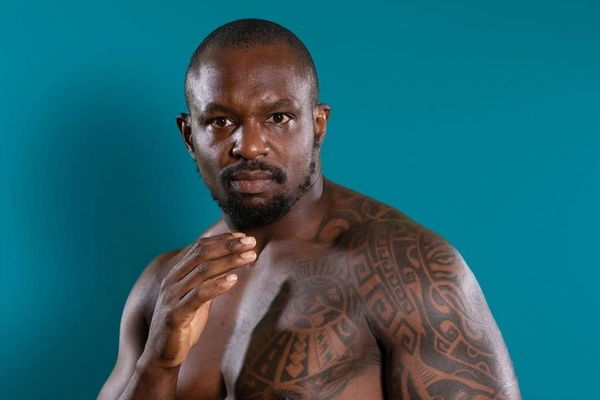

Switching from kickboxing to boxing is never straightforward. While some athletes struggle to adapt, former kickboxing champion Dillian Whyte has made the transition look seamless. The 37-year-old powerhouse has stamped his authority in combat sports over two decades, although his professional boxing career officially began in 2011 after earlier success in kickboxing and K-1-style competitions. Whyte’s three professional boxing defeats have come to Anthony Joshua (2015), Alexander Povetkin (the 2020 rematch TKO) and Tyson Fury (2022), names that underline the level he’s competed at.
Tonight, Whyte steps into the ANB Arena in Riyadh, Saudi Arabia, to face the unbeaten 20-year-old Moses Itauma (12-0, ≈10 KOs). Experience sits on ‘The Villain’s’ side, but Itauma’s rapid rise and heavy knockout rate have already made him a fan favourite and the bookmakers’ favourite heading into the fight.
Dillian Whyte’s three-fight winning run last year, but inconsistency has lingered, while Itauma’s rise has been meteoric. Tactically, this is fascinating: Whyte brings pressure, heavy body work and experience against elite opposition; Itauma brings youth, speed and finishing power. A single decisive sequence — a body shot to slow the younger man or a counter left that ends a rally — could tilt the scales and instantly reframe the heavyweight pecking order.
ADVERTISEMENT
Article continues below this ad
What is Dillian Whyte’s ethnicity & nationality
Born in Port Antonio, Portland, Jamaica, Dillian Whyte (born April 11, 1988) started life in Jamaica before moving with his family to the UK at around age 12. His family background includes an Irish grandfather (Patrick Whyte) who emigrated from Dublin to Jamaica — which is why Whyte sometimes acknowledges Irish roots — but Whyte is widely described as Jamaican-born and British in nationality and identity. His father never revealed his religion, while his mother practiced as a devoted Muslim.
The Jamaican’s early life was unforgiving. When his mother left for England to work as a nurse, he stayed behind in Jamaica with his siblings. She sent money home to relatives expected to care for them, but they kept it instead, leaving the children hungry.
Top Stories
Reuniting with his mother in England brought stability, but new challenges quickly emerged. In a 2020 interview with the BBC, Dillian Whyte recalled his first experiences with racism, “I moved to England when I was 12 to be with my mum, which is when I first experienced racism. Someone called me a ‘black so and so’ at school. It didn’t bother me. But that’s when I realised I was different. Even the police would call me names. Growing up in Jamaica, there were no white people or black people, we were just Jamaicans, we were just people.”
View this post on Instagram
Still, the move to England—meant to provide a better life—brought its own struggles. ‘The Baby Snatcher’ never imagined he would one day leave a mark on the sporting world; in those early years, survival came first. After spending his childhood in Jamaica, life in London was equally unforgiving, surrounded by violence that included shootings and stabbings.
What’s your perspective on:
Can Dillian Whyte's experience outshine Itauma's youthful speed, or is the young gun set for glory?
Have an interesting take?
More about Dillian Whyte’s early life & background
“I had no schooling at all when I lived in Jamaica,” Dillian Whyte once revealed. His arrival in the UK proved anything but smooth. Whyte has said he was expelled from school multiple times and fell in with gangs before finding structure in combat sports — first kickboxing, then mixed martial arts, and ultimately professional boxing. That combat sports pathway is central to the story of his resilience. In South London, he survived by collecting empty Coke bottles from the beach and cashing the deposit for sweets — survival in its rawest form.
ADVERTISEMENT
Article continues below this ad
London brought a different kind of hardship. Classmates mocked his accent, clothes, and background, and the relentless bullying pushed him toward street gangs, where violence ruled daily life. He racked up school expulsions, and the streets left their scars: someone stabbed him, and another time he took a bullet.
Reflecting on those years, Dillian Whyte said: “I got into a lot of scraps, because I spoke different, dressed different, looked different. I was expelled lots of times. I was shot and stabbed in the leg. These things happen in London. It’s just part of being in gangs and screwing up. If I weren’t a boxer, I’d probably be dead or in prison.”
Defying the odds, Dillian Whyte broke free from the chaos of his past and found direction in kickboxing — the sport that first molded his raw talent into discipline. That foundation carried him into boxing, where he climbed the ranks to become a two-time interim heavyweight champion. Now, as he returns to the ring, one question stands out: can Dillian Whyte push his winning streak to four and reignite his place among the division’s elite?
ADVERTISEMENT
Article continues below this ad
Defying the odds, Dillian Whyte broke free from the chaos of his past and found direction in kickboxing. This foundation shaped his heavy-handed style and conditioning before he fully switched attention to boxing in 2011. That foundation carried him into boxing, where he climbed the ranks to become a two-time WBC interim heavyweight champion. Now, as he returns to the ring against Itauma on August 16, 2025, the question is: can Dillian Whyte push his winning streak and reignite his place among the division’s elite, or will the youngster’s speed and finishing instinct create the next big upset?
Share your prediction below.
ADVERTISEMENT
ADVERTISEMENT
ADVERTISEMENT
ADVERTISEMENT



Can Dillian Whyte's experience outshine Itauma's youthful speed, or is the young gun set for glory?